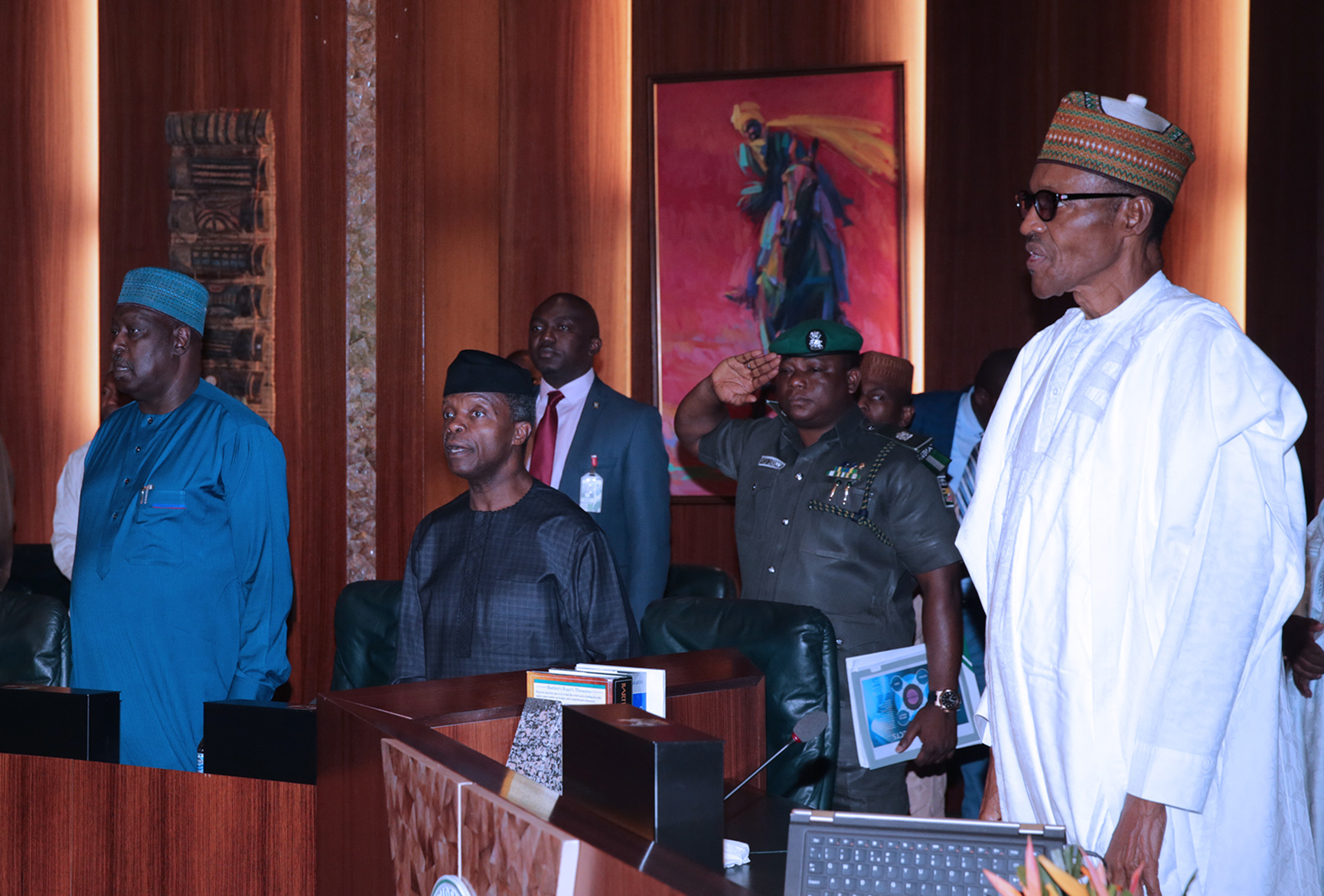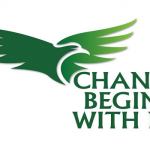Nigeria’s rising inequality and Buhari’s social investment program
By Johannes Wojuola
Depending on the car you are driving, Byazaxhin – home to thousands of lower class workers and hustlers – is a 30 to 40 minutes drive away from Maitama – hub of Abuja’s wealthy and affluent. Extremely bad roads, rusted zincs and side shops that sell everything from palm oil to motorcycle parts is the ambience of Byazaxhin. The opposite is the case for Maitama and its brother-in-luxury, Asokoro. Both districts are a world apart from each other when measured in terms of development. Yet they are just a few hills away within the Federal Capital Territory.
The inequality that pervades the Nigerian society is poignant and scary. It is vast, yet trivialized. The upper classes do not appreciate the extent of the sufferings of the lower class – at best, what is known is a surface quantification in terms of data.
Sitting in the conference rooms of 5 star hotels, or at some choice luxury restaurant, or in chilled elegant air conditioned offices, figures are churned and arguments postulated – from opinion to opinion, from hypothesis to hypothesis – on the facts of poverty and propriety of social security.
The bluish aura of Twitter is not left out. A search on the trend of many months ago, #Our5k, would expose you to the thoughts from e-Professors on the proposed welfare scheme. But the fact is none of the commentators on this issue – whether proponents or opponents – have a true appreciation of the cause they are fighting for. They can afford high priced gadgets, data and the time – 5k is not their problem indeed. Like a Twitter user once asked: Can 5k even buy my data? I scarcely think so.
“To experts, a social problem like inequality is only numbers,” Brazil’s Lula da Silva said in 2014. And that is a fact.
Beyond the experts, neither the critics nor the proponents of social welfare to the poor would fully comprehend its impact. Most, like me, would grasp it to the extent of figures, and a reminiscence or feeling of being broke – but not half the reality of what it really is.
While social welfare – a system of doling assistance to the poor and needy – means little to most, and remote to many, there would always be the poor among us. And this inequality is further worsened when government policies are all out focused on satisfying the elite and capitalists and not the masses – who often case are the majority. Government’s economy of scale has most times disproportionately favoured the elite.
The fix to this: government must take up the conscious duty of filling the gap of raging inequalities, by tilting its economy of scale more in the direction of the less privileged in the society.
The biggest challenge to the stability of any society is inequality. Yet, it pervades every country’s strata. Through policies like minimum wage, progressive taxation and welfare programs, governments around the world have tried to equalize living standards within their boundaries.
Most of these have produced the needed results: take for example Brazil’s Fome Zero and its renowned Bolsa Familia Scheme. Introduced in 2003 by the then President, Lula da Silva, the Bolsa Familia was one of Lula’s over 40 different welfare programs. It was a scheme to simply hand money to the poor. And it changed lives: it reached over 14 million families; cut extreme poverty by 15%; decreased malnutrition and lifted 36 million people out of poverty.
Nigeria’s history pages document government interventions that show we have been on similar paths at some point in time – from NAPEP which focused on cash transfers, poverty eradication and unemployment, to the Universal Basic Education programs aimed at eradicating illiteracy among Nigerian school going children, to the past administrations subsidy reinvestment and empowerment programs. Placed side by side, these programs and Nigeria’s current poverty and unemployment state leaves a question in mind: has there been an appreciable reduction impact through these programs on poverty, unemployment and illiteracy?
There is the opinion that poor coordination, duplication, poor database, lack of strategic targeting and poor monitoring and evaluation caused low performance of these projects.
So do not blame the pessimist who throws negativity in the arena when state pursued social welfare is discussed.
Yet, social investment works; like it has in Germany, UK, Brazil, US and many countries employing its anti-poverty schemes to bridge inequalities and improve the standard of living of their people.
Beyond the arguments of talk-shops, President Buhari’s social investment program, with an unprecedented appropriation, not to cater for the luxurious allowances of political office holders, or the inanities of white elephant projects, but to give real succor and assistance to Nigeria’s poor and lower-class, has the potentials of improving the lives of millions of Nigerians living in abject poverty.
The program is 5-armed: the training and employment of 500,000 graduates- training in education, health, agriculture, technology, creative, construction and artisanal industries; the feeding of school children in public primary schools – with food gotten from home grown farmers and vendors; the cash transfer program – arguably one of President Buhari’s most misconstrued campaign promise – which would give direct cash transfers to the poorest Nigerian households, tied to the responsibility of the beneficiary embarking on human capital development so they graduate from the program, thus easing the worry of a dependency syndrome; the government enterprise and empowerment program which would give access to finance to credible market men and women, registered cooperatives, youths, artisans and farmers; and the last but not the least: the bursary disbursement program to provide support, in tuition, accommodation and books, to students studying education, sciences, technology, engineering and mathematics – which are courses vital for technological development.
The worry of how beneficiaries would be selected seems to have been catered for; the National Social Safety Coordinating Office in the Office of the Vice President, whose mandate is the coordination of these programs, has put in place careful steps in the transparent and fair identification of beneficiaries for each program. Take the instance of the cash transfer program which would employ a community based targeting team from the Federal, State and Local Government levels that would map out within the poorest communities, the poorest families as beneficiaries.
Two of these programs have kicked off already.
The selection process for the first 200,000 beneficiaries of the N-Power program has been completed. They would be paid N30,000 monthly stipends and be given an electronic tablet with applications that would empower the participants. The Home Grown School Feeding program has equally commenced with the recruitment of vendors and the selection of beneficiaries.
Stronger cooperation and partnerships with the state governments have been forged to make these programs work. The states would play a major role in logistics, infrastructure, dispatch of N-Power’s recruits, vendor recruitments, and identification of beneficiaries in some of the programs, monitoring and evaluation. Of great importance to the success of these programs is the political will and buy-in of the states: to give it their maximum support, and where possible give additional benefits to beneficiaries.
Proper identification of the right beneficiaries is key as well. And the hammering of the critics too, to keep the programs in check.
This investment in Nigeria’s vulnerable population would change lives, for the better. Increase in disposable income of families, in the nutrition and well-being of school children, in our literacy numbers – as more kids would be prodded to attend with the food boon; empowerment of farmers as well as boosting of local production – with its attendant multiplier effect of improved standard of living; empowered youths with tech, agro and educational skills are just a few of the corollary fruits from Buhari’s social welfare package.
Inequality is increasing – around the world. The gap between the rich and poor is becoming more evident – even as technological innovations now “allow anyone with a Smartphone to see how the most privileged live.”
The paradox of having the beautiful hills and affluent homes in the Maitama district only a few kilometers from Byazaxhin is the palpable reality of this.
It is a call to act. Government must work towards closing this gap. And its social welfare program is a positive and conscious start. Like Brazil’s Bolsa Familia, there would be challenges; coupled with opposition pundits decrying every inch of progress. Focus: the government must not take its eyes from the target.
Yet, it must listen and sieve sense from the cacophony of the critics; to know where the tyre wobbles, and where some fixes have to be made. Better is possible.
Johannes Wojuola is a Lawyer, and member of the Abuja Global Shapers Hub (An Initiative of the World Economic Forum)




What do you think?